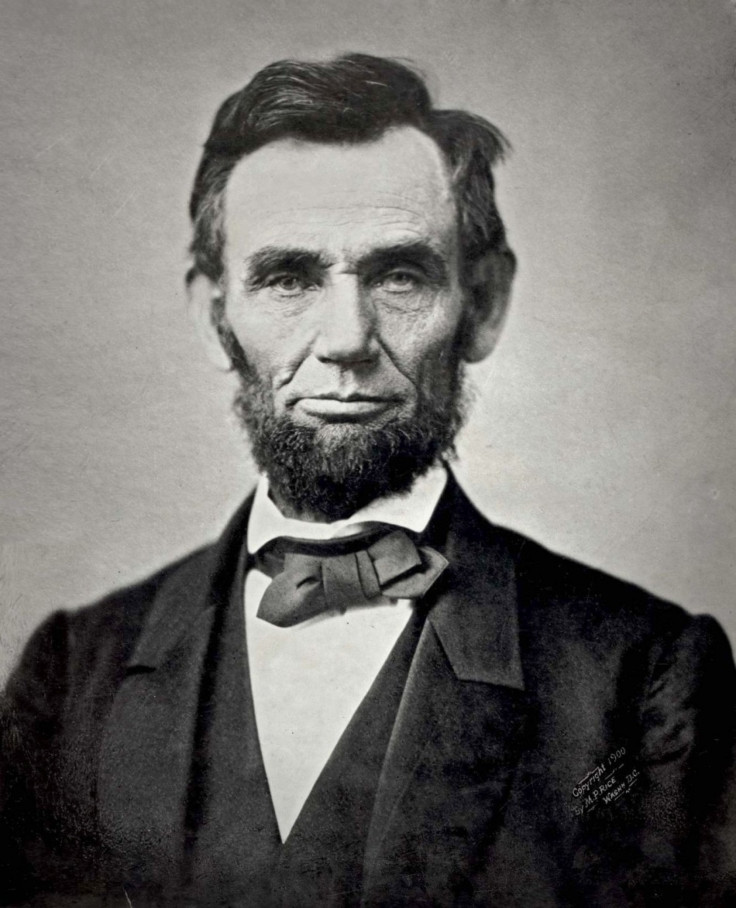Abraham Lincoln Impeached In Yale Law Professor?s New Novel

A new novel by Yale Law professor and writer Stephen L. Carter gives us a bizarre alternate outcome of the Abraham Lincoln presidency, had it not been cut short by John Wilkes Booth.
The result, though, is a bit jarring. In Carter's novel, Abraham Lincoln is impeached.
The Impeachment of Abraham Lincoln begins with the president surviving his attempted assassination at the hands of Booth in Ford's Theater on April 15, 1865. Two years pass and the president faces constitutional challenges and intraparty strife with his fellow Republicans, who feel he didn't go far enough in his promises to care for the South's freed former slaves.
Even when Lincoln was alive, many leading abolitionists felt that he had not been as anti-slavery as he should have been and that he was not as committed to the equality of black men as he should have been, Carter told the New York Daily News.
If all of this sounds vaguely familiar, bear in mind that our current President Barack Obama is facing his own accusations of half-heartedly pushing his party's own platform. If, however, the notion of a Republican doing right by black Americans sounds odd, place the blame on the modern GOP's iteration since the 20th century.
But Lincoln's growth into the slave-freeing abolitionist was gradual, as Carter points out.
He was certainly not as committed to the freedom of slaves or equality before his presidency, Carter said. But he grew into it. There was a maturing of his conscience, if you will, which was one of the most admirable things about Lincoln's years in office.
Though Lincoln is widely considered our greatest president, Carter's novel brings to light oft-forgotten sins the Great Emancipator committed in the name of preserving the Union.
I think Lincoln was our greatest president; I have no question about that. But at the same time, there were a lot of things that Lincoln did during his presidency, in order to win the Civil War, that could be called into question, Carter told NPR. And so my idea was to write a courtroom drama that was crafted around that possibility. The path I sketch in my fiction is one possible path history might have taken.
The suspension of habeas corpus, shutting down opposing papers and jailing journalists and handing over government funds to private citizens so they could arm themselves are among the many wartime actions Lincoln is taken to task for in Carter's novel.
In each and every case Lincoln would say, this is what I have to do to win the war, Carter said. When a president says I have to do this or that to win the war, how much deference do we give to that?
Though Lincoln remains the novel's protagonist, his savior comes in the form of Abigail Canner, a 21-year-old black woman who graduated Oberlin University and was the daughter of free parents -- not slaves.
She is hired by the law firm defending Lincoln during his impeachment trial, and her investigation reveals an elaborate conspiracy to kill the president.
Carter has made a habit of avoiding the stereotypical up from the streets black characters that often appear in pop culture.
In real life there are indeed black people who have been in the middle class for generations, but in entertainment it's as if they don't exist, he said.
Ultimately, Carter's The Impeachment of Abraham Lincoln aims to take the revered president to task. The professor himself considers Honest Abe No. 1 among all commanders in chief, but still thinks he's getting away scot-free.
I don't think we should pretend that because he was heroic, and because we admire him so, nothing he did can be questioned, Carter told the Washington Post.
At least in this book, Lincoln is not hunting vampires.
© Copyright IBTimes 2025. All rights reserved.





















